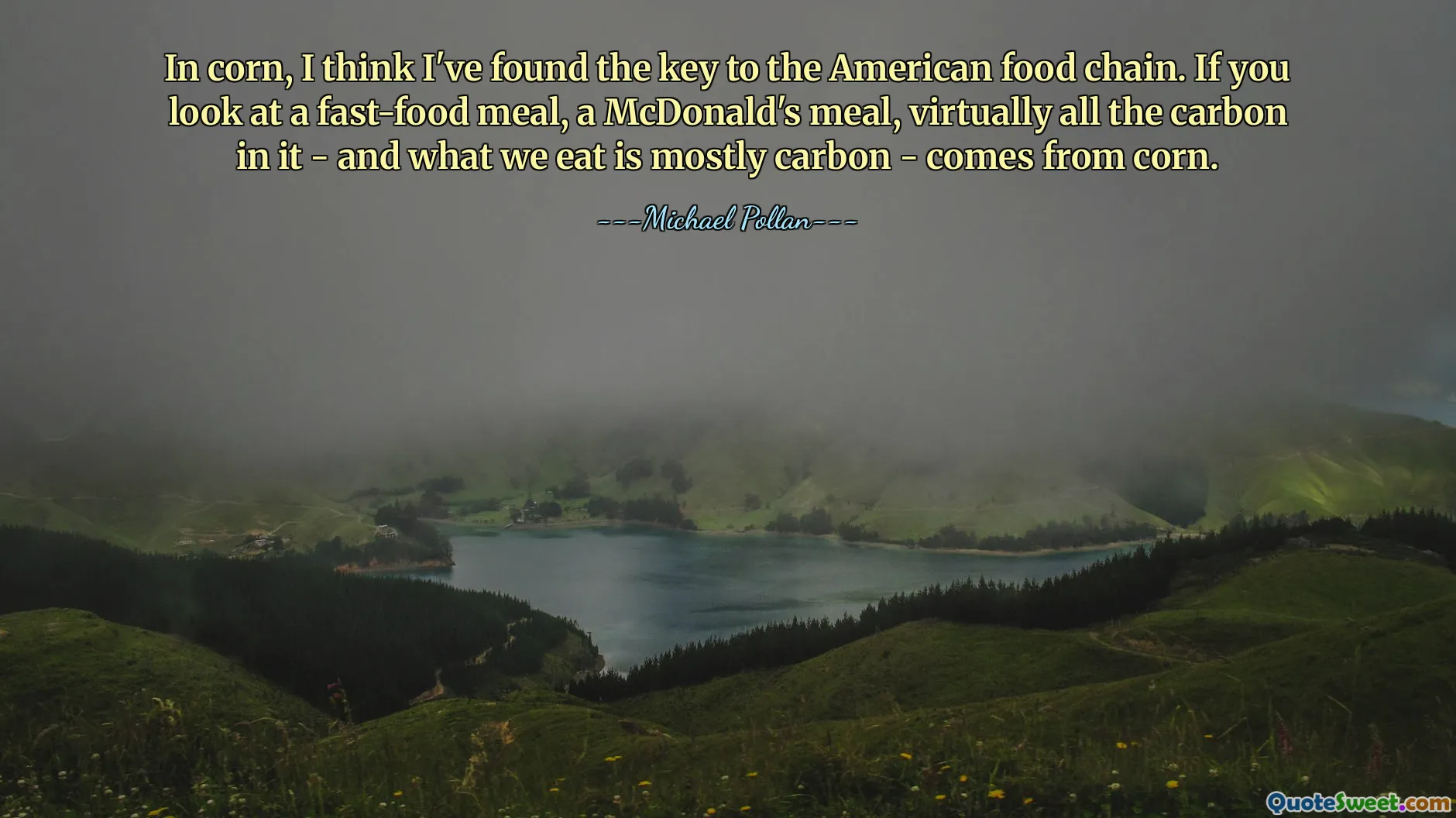
In corn, I think I've found the key to the American food chain. If you look at a fast-food meal, a McDonald's meal, virtually all the carbon in it - and what we eat is mostly carbon - comes from corn.
This quote highlights the profound influence of corn on the American diet and food industry. Corn is ingrained into many aspects of our food system, serving as a fundamental ingredient in numerous processed foods, beverages, and animal feed. The fact that most of what we consume, especially in fast-food meals, contains corn-derived products reveals how monoculture crops like corn have become cornerstones of modern food production. This dependency raises questions about dietary health, environmental sustainability, and agricultural practices. For instance, it prompts us to consider the ecological impacts of extensive corn cultivation, such as soil depletion, pesticide use, and water consumption. Additionally, it underscores geopolitical and economic issues surrounding corn subsidies and the food industry's reliance on cheap, mass-produced ingredients. Understanding the central role of corn in our food system also invites reflection on the diversity of our diet and whether it promotes nutritional variety. Moreover, it pushes for a broader conversation about sustainable agriculture and how shifting our crop dependencies could mitigate environmental issues while promoting healthier eating habits. Recognizing that much of our calories, especially those in fast food, derive from corn makes us more aware of the interconnectedness of crop choices, economic policies, and health outcomes, urging a reassessment of how we produce and consume food in contemporary society.









